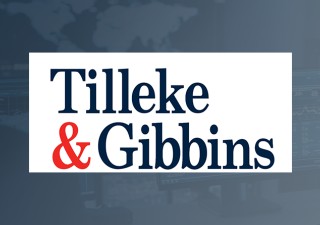Investors Turn Their Eyes to Myanmar
14 December 2015

Investors are eagerly watching Myanmar for signs of stability following the November general election, the country’s first free elections in 25 years. Official results released gave the National League for Democracy (NLD) – the party of long-time opposition leader Aung San Suu Kyi – an absolute majority of seats in both chambers of the national parliament, enough to ensure that its candidate would become president.
Lawyers who are interested in intellectual property matters in Myanmar will have a front-row seat to the new government. One of their own, U Myint Lwin, a lawyer and proprietor of U Myint Lwin Law Office in Yangon, was elected to Parliament on the NLD ticket, defeating his Union Solidarity and Development Party opponent by 19,129 votes to 1,866.
He hopes, he said on the sidelines of the November Asian Patent Attorneys Association meeting in Okinawa, Japan, to play an important role in pushing intellectual property legislation through Parliament once the NLD takes control early in 2016.
“I am an IP lawyer and an MP, so I can initiate [sending IP laws through],” he said. “If I [were not an MP], I would have no authority, and I [wouldn’t be able to] initiate anything. But I can explain to my party – and the party is powerful – and we can push it through.”
Myint Lwin has worked extensively, even before his election to Parliament, to promote intellectual property laws in Myanmar, through working with the Ministry of Science and Technology, the Myanmar Chamber of Commerce and international organizations such as INTA, IPAN (the Intellectual Property Associates Network) and others.
He says he has discussed the importance of IP laws with Aung San Suu Kyi, who will oversee a much larger picture about the future of Myanmar. “She has to think about the constitution, she has to promote the economy, she has to think about job creation. My side, I’m like a housekeeper; there’s particular work I have to do. I’ll be on the inside to open the door for IP.”
Rapid economic reforms since the quasi-civilian government came to power in 2011 have already led to dramatic economic growth, spurred by the liberalization of the private sector and new opportunities for foreign investment, says Michael Ramirez, a senior consultant who leads the Myanmar practice at Bangkokheadquartered law firm Tilleke & Gibbins. “But as elections and the subsequent challenge of forming a new, more politically inclusive government loom, risks and opportunities will remain. Foreign investors are currently assessing both as they consider investment in Myanmar.”
A week after the election, president U Thein Sein pledged to systematically transfer power to the incoming government in line with the Myanmar constitution, the English-language Global New Light of Myanmar newspaper reported. At a November 15 meeting with political parties in Yangon, U Thein Sein stressed that the current government would work for a smooth transition in line with existing laws, regulations and procedures, and would do so “calmly, peacefully, and smoothly so as not to cause worries about the power transfer,” the newspaper reported.
The president also reminded political parties to make preparations to participate in political dialogue, as they also play a role in the peace process, the newspaper reported.
While foreign investors have been generally bullish on Myanmar, vocal opposition to a US$300 million real estate project by the nationalist Organization to Protect Race and Religion showed the perils that remain. The protests forced the government to cancel the project because of its proximity to the Shwedagon Pagoda, a glittering gold-plated structure that towers over Yangon. “This cancellation of a prominent foreign investment project came months after the project’s launch and initial approvals,” Ramirez says. “High-profile events such as this have had a dampening effect on foreign investment in the volatile property sector.”
Data from the government’s Directorate of Investment and Company Administration (DICA) shows that the approved amount of annual foreign investment in Myanmar real estate has increased steadily from US$440 million in 2013-14 to US$780.7 million in the current fiscal year. “The economy needs a government that can focus on further development of the country, with an emphasis on infrastructure and encouragement of FDI,” Ramirez told Asia Cargo News. “It is similarly important that the new administration focus its attention on building and enhancing business relationships with other nations, including the West.”
Uncertainty about the outcome of the post-election political climate may have suppressed FDI in-flows in the run-up to the election, but Ramirez says those fears were likely misplaced. “We consider that fears of instability following the general elections are disproportionate to the reality of the Myanmar political scenario. Even an economist from the Ministry of Commerce was prepared to acknowledge this in a December 2014 interview, noting that he anticipated that FDI would surge after the election regardless of the specific outcome.”
The relationship between Myanmar’s military government – which will continue to govern the country until sometime early next year – and the NLD remains the wildcard in the foreign investment puzzle.
“Most believe that cooperation [between the sides] will occur, with a focus on the continued goals of economic reform,” Ramirez says. “In addition, early rhetoric from the NLD leadership, including Aung San Suu Kyi, suggests a measured cooperative approach and one in which a victorious NLD will not seek to immediately create social or political conflict with the military, the prior administration, or minority parties.”
That said, Ramirez said his firm’s analysis indicates that the same caution that has been exercised by mostly Western investors will continue over the first few months of the new administration. “Assuming the expected transition goes smoothly, by the middle of 2016, we expect that there will begin to be more active participation by Western investors with continued investment initiatives from Myanmar’s regional neighbors.”





